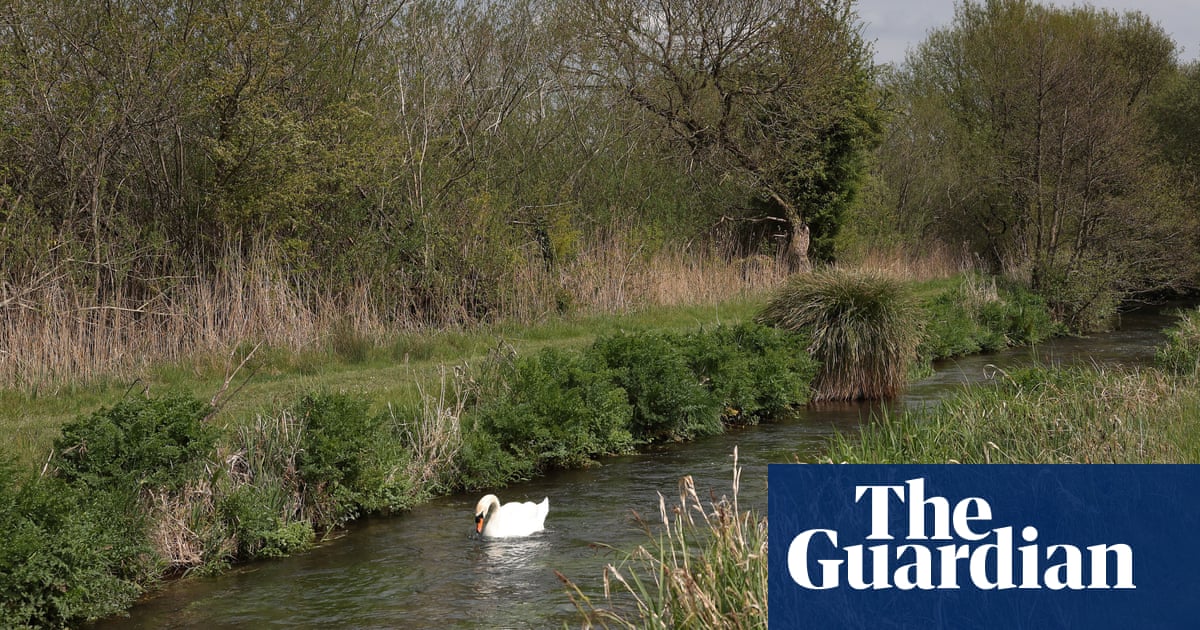A cross-party attempt to protect England’s rare and threatened chalk streams in the government’s planning bill was rejected by Labour on Wednesday.
The attempt to give that the globally rare ecosystems the strongest protections as irreplaceable habitats failed after all the Labour MPs on the parliamentary committee examining the draft law rejected an amendment containing the extra provision.
There are only 200 chalk streams in the world, the MPs heard, and England is home to 85% of them. Many are already in an extremely poor condition, suffering from pollution and over abstraction – the removal of water – to serve developments. Only 37% of the streams meet ecological standards of “good”.
Ellie Chowns, a Green MP and member of the committee, said: “These are globally significant ecosystems and they are largely restricted to our shores. So we have a huge responsibility to protect them.”
Chowns said there were no national protections for chalk streams and put forward the amendment to the planning and infrastructure bill, which was supported by a group of cross-party MPs. The amendment would create protections for the habitats as the government attempts to rip up what it sees asenvironmental red tape to push for housing and infrastructure growth.
The planning bill has been labelleda licence to kill natureby economists and ecologists because it allows developers to pay into a nature restoration fund rather than follow current environmental obligations to protect rare habitats and species.
Under the bill, the payment into the fund would allow developers to begin work immediately while the money is used to improve nature, potentially in another region of the country.
Critics point out that this strategic mitigation does not work for such a rare habitat as a chalk stream, which is impossible to recreate elsewhere.
The amendment sought to impose protections for all chalk streams – most of which stretch across planning authority boundaries – and to require officials to identify the measures to be taken to protect any identified chalk streams from pollution, abstraction, encroachment and other forms of environmental damage. It would also have imposed responsibilities on strategic planning authorities in relation to the protection and enhancement of chalk stream habitats.
Luke Murphy, the Labour MP for Basingstoke, said the bill was not the right place to create such protections. Matthew Pennycook, the housing minister, said the government was committed to restoring and improving chalk streams. “These are unique water bodies, not just vital ecosystems but symbols or our national heritage,” he said, adding that the government had undertaken a comprehensive set of actions outside the bill to protect chalk streams.
“We don’t believe it is necessary to include the provision in this legislation,” he said.
Becky Pullinger, the head of land use and planning at The Wildlife Trusts, said: “As we face the driest spring since 1956, with chalk stream flows at historic lows, it’s vital that the planning and infrastructure bill ensures irreplaceable habitats like these are safeguarded from harm.
“England has 85% of the world’s chalk streams and so today’s decision from the government is deeply disappointing.”
